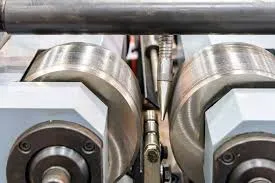
-
 Afrikaans
Afrikaans -
 Albanian
Albanian -
 Amharic
Amharic -
 Arabic
Arabic -
 Armenian
Armenian -
 Azerbaijani
Azerbaijani -
 Basque
Basque -
 Belarusian
Belarusian -
 Bengali
Bengali -
 Bosnian
Bosnian -
 Bulgarian
Bulgarian -
 Catalan
Catalan -
 Cebuano
Cebuano -
 Corsican
Corsican -
 Croatian
Croatian -
 Czech
Czech -
 Danish
Danish -
 Dutch
Dutch -
 English
English -
 Esperanto
Esperanto -
 Estonian
Estonian -
 Finnish
Finnish -
 French
French -
 Frisian
Frisian -
 Galician
Galician -
 Georgian
Georgian -
 German
German -
 Greek
Greek -
 Gujarati
Gujarati -
 Haitian Creole
Haitian Creole -
 hausa
hausa -
 hawaiian
hawaiian -
 Hebrew
Hebrew -
 Hindi
Hindi -
 Miao
Miao -
 Hungarian
Hungarian -
 Icelandic
Icelandic -
 igbo
igbo -
 Indonesian
Indonesian -
 irish
irish -
 Italian
Italian -
 Japanese
Japanese -
 Javanese
Javanese -
 Kannada
Kannada -
 kazakh
kazakh -
 Khmer
Khmer -
 Rwandese
Rwandese -
 Korean
Korean -
 Kurdish
Kurdish -
 Kyrgyz
Kyrgyz -
 Lao
Lao -
 Latin
Latin -
 Latvian
Latvian -
 Lithuanian
Lithuanian -
 Luxembourgish
Luxembourgish -
 Macedonian
Macedonian -
 Malgashi
Malgashi -
 Malay
Malay -
 Malayalam
Malayalam -
 Maltese
Maltese -
 Maori
Maori -
 Marathi
Marathi -
 Mongolian
Mongolian -
 Myanmar
Myanmar -
 Nepali
Nepali -
 Norwegian
Norwegian -
 Norwegian
Norwegian -
 Occitan
Occitan -
 Pashto
Pashto -
 Persian
Persian -
 Polish
Polish -
 Portuguese
Portuguese -
 Punjabi
Punjabi -
 Romanian
Romanian -
 Russian
Russian -
 Samoan
Samoan -
 Scottish Gaelic
Scottish Gaelic -
 Serbian
Serbian -
 Sesotho
Sesotho -
 Shona
Shona -
 Sindhi
Sindhi -
 Sinhala
Sinhala -
 Slovak
Slovak -
 Slovenian
Slovenian -
 Somali
Somali -
 Spanish
Spanish -
 Sundanese
Sundanese -
 Swahili
Swahili -
 Swedish
Swedish -
 Tagalog
Tagalog -
 Tajik
Tajik -
 Tamil
Tamil -
 Tatar
Tatar -
 Telugu
Telugu -
 Thai
Thai -
 Turkish
Turkish -
 Turkmen
Turkmen -
 Ukrainian
Ukrainian -
 Urdu
Urdu -
 Uighur
Uighur -
 Uzbek
Uzbek -
 Vietnamese
Vietnamese -
 Welsh
Welsh -
 Bantu
Bantu -
 Yiddish
Yiddish -
 Yoruba
Yoruba -
 Zulu
Zulu
Exploring Various Thread Rolling Machine Designs and Their Unique Applications
Famous Types of Thread Rolling Machines
Thread rolling machines are essential tools in the manufacturing sector, particularly in the production of fasteners and threaded components. These machines use a process called thread rolling to create threads on a variety of materials, such as metals and plastics, by forming rather than cutting. This method is prized for its efficiency, strength, and precision. In this article, we will explore some of the most famous types of thread rolling machines, highlighting their features, applications, and benefits.
1. Flat Die Thread Rolling Machines
Flat die thread rolling machines are one of the most common types used in the industry. In this system, two flat rolling dies are used to create threads on a workpiece that is fed through the machine. The dies are designed with the thread profile, and as the workpiece passes through, the dies exert pressure, forming the threads. This method is particularly effective for producing long, straight threads and is widely used for screws, bolts, and other fasteners. The advantages of flat die machines include their ability to produce high volumes of parts with consistent quality and a reduced risk of material waste.
2. Planetary Thread Rolling Machines
Planetary thread rolling machines are known for their unique design, in which multiple rolls move around a central point, resembling a planetary system. This structure allows for the simultaneous rolling of multiple threads on a single workpiece. The strength of planetary machines lies in their ability to produce threads with exceptional precision and surface finish. Because they can handle larger workpieces and thicker materials, they are often utilized in applications where durability is critical, such as in automotive and aerospace industries.
3. Radial Thread Rolling Machines
famous types of thread rolling machine

Radial thread rolling machines utilize a different approach, employing a set of rollers that act radially from a central axis. The workpiece is rotated against the rollers, which create threads through radial compression. This method can be applied to cylindrical objects and is particularly effective for producing short, precise threads. Radial machines are often used for small to medium-sized components where precise dimensions are necessary, such as in electronic and telecommunication devices.
4. CNC Thread Rolling Machines
Computer Numerical Control (CNC) thread rolling machines represent the latest advancement in thread rolling technology. By integrating computer controls, these machines can achieve high precision and repeatability, making them suitable for complex threading applications. CNC systems allow for easy adjustments in thread pitch, depth, and profile, catering to varied product requirements. The capabilities of CNC machines make them highly efficient for small and medium production runs where customization is frequently required. They have found applications in a range of sectors, from medical to automotive.
5. Multi-Station Thread Rolling Machines
Multi-station thread rolling machines offer versatility by allowing multiple operations to be performed in a single setup. These machines can handle various processes, such as thread rolling, chamfering, and even cutting, all within one cycle. This multi-tasking capability significantly improves operational efficiency and is ideal for manufacturers looking to streamline their production processes. Multi-station machines are particularly beneficial for high-volume production environments, where time and resource management are critical.
Conclusion
Thread rolling machines are crucial in modern manufacturing, and their various types cater to different production needs and specifications. From flat die machines that focus on high-volume, consistent outputs to advanced CNC systems that allow for customization and precision, each type plays a significant role in the industry. As technology continues to advance, thread rolling machines are expected to evolve further, becoming even more efficient and adaptable to meet the demands of contemporary manufacturing challenges. Understanding the unique characteristics of each type helps manufacturers choose the right equipment for their specific threading needs, ultimately contributing to improved product quality and operational efficiency.
